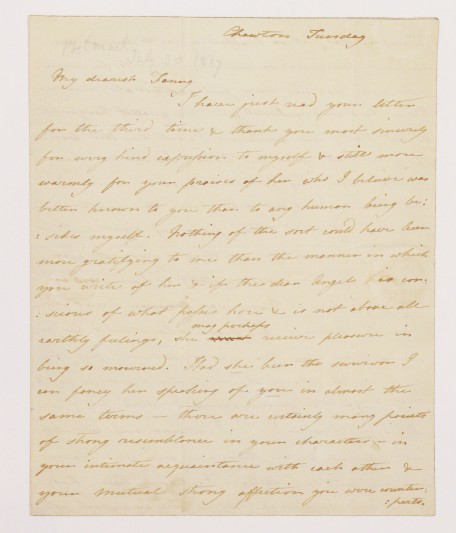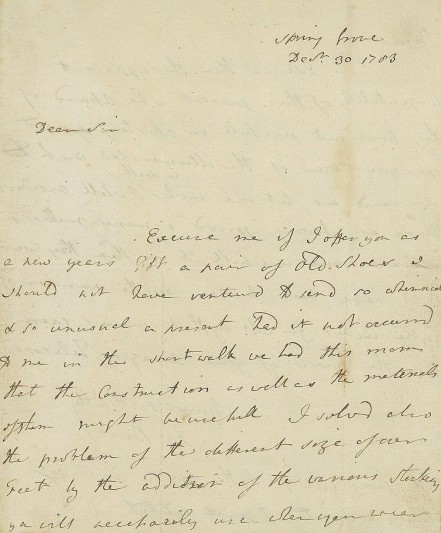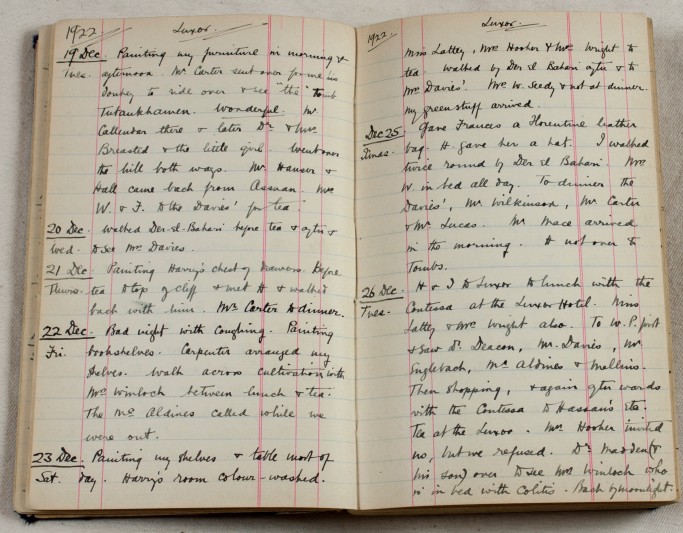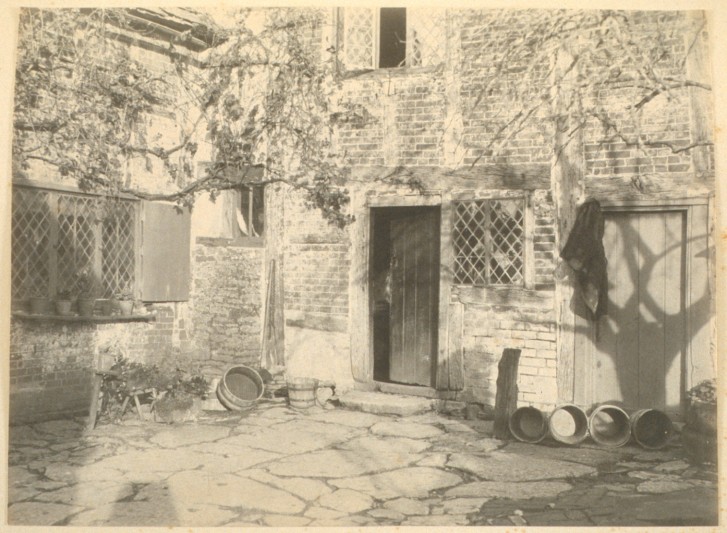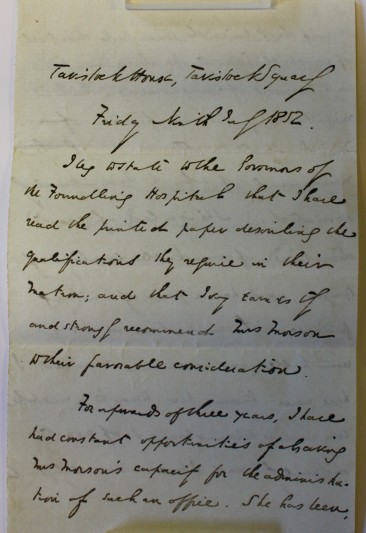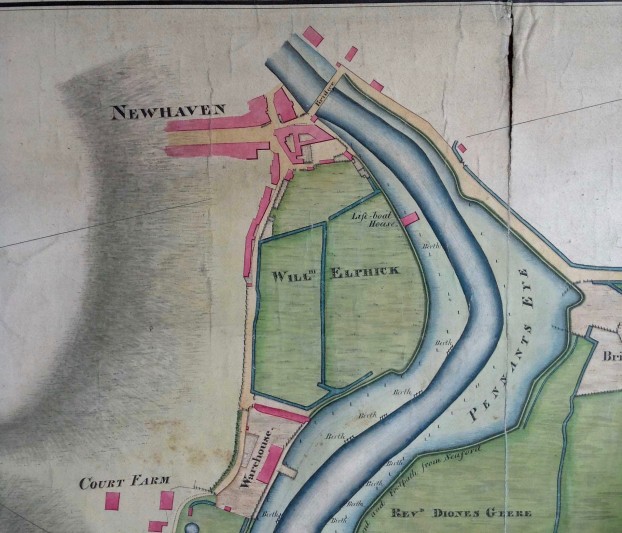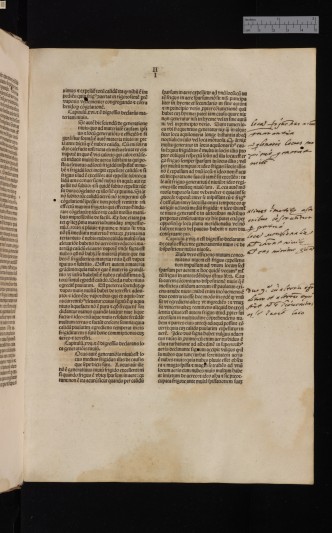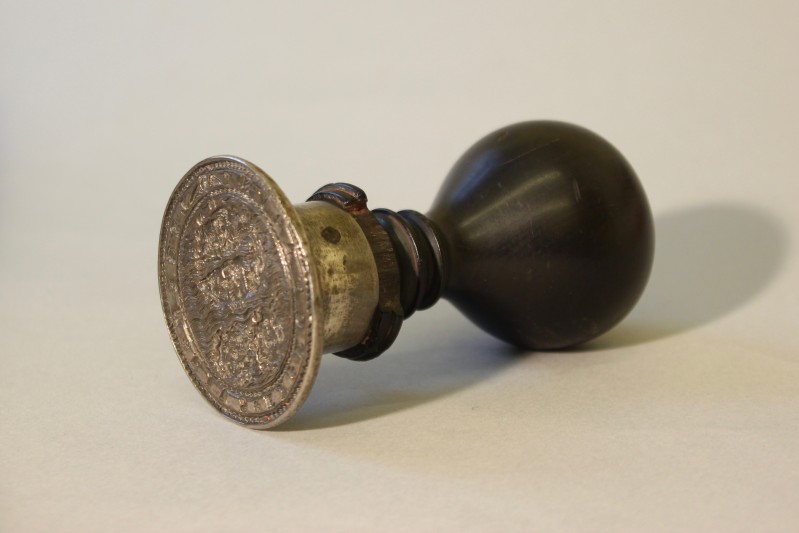A rare and poignant autograph letter written by Austen's sister, Cassandra, in the days following the author's death. The letter is addressed to Fanny Knight, the eldest child of Cassandra’s brother Edward. It documents the anguish faced by Cassandra as she returned to Chawton from Winchester, where she had for two months been nursing her dying sister, and on its second page describes the modest funeral of Jane Austen that had taken place a few days previously. As well as being written in Chawton, in the home Jane and Cassandra shared for eight years, Cassandra’s closing comments refer to the types of memorial jewellery now in the Museum’s collection.
Search FNL grants since 1931
Letter from President of the Royal Society, Joseph Banks to Astronomer William Herschel, praising the efficiency of his telescopes and offering him a pair of his old shoes. The letter is an important document for any museum or institution with an interest in William Herschel, as it represents one of the earliest pieces of correspondence between the eminent botanist and the amateur astronomer.
Minnie Burton married her second husband in 1914, the British archaeologist and photographer Harry Burton (1879-1940), whom she accompanied on all his travels. Her diary covers the period from the 4th of May 1922 to the 20th of October 1926 and contains daily entries recording social engagements and memorable events, including the excavation of the tomb of Tutankhamun by Howard Carter’s team, of which her husband Harry was a part. The diary details her life and travels with her husband at home in Florence, their stays in Egypt (especially in Luxor, but also in Cairo), the trip they made across the US and to Hollywood in 1924, and various holidays in Europe.
Gertrude Jekyll (1843-1932) was one Britain’s most influential garden designers. This unique album of platinum prints dates from between 1885 and 1886. Jekyll took up photography, probably under the tutelage of her brother, Sir Herbert, in 1885, developing a special interest in recording English vernacular architecture and rural traditions. Jekyll was important as one of the few garden writers and designers who took and used her own photographs alongside her text in order to emphasize her aesthetic style and represent visually the ideas suggested and discussed in her writing. The superiority of the platinum prints in this album illustrate her skill as a photographer and her superior grasp of the technical craft of exposing and developing fine art photography prints.
The letter is a testimonial of Georgiana Morson, a matron at Urania Cottage, the home for 'fallen women' that Dickens established with the wealthy philanthropist Angela Burdett-Coutts. It is in support of her application for a position at the Foundling Hospital, and as such, speaks to the relationship between the writer, the Foundling Hospital and Urania Cottage.
Hugo Williams’ archive consists of the manuscripts of all his writing in poetry and prose: twelve volumes of poetry, two travel books and his journalism for the ‘Freelance’ column in The Times Literary Supplement. What makes it so special is its completeness. Williams, who has never used a computer, has kept all his working papers, from his schooldays at Eton to the present day. Williams has been called ‘Eton’s most important poet since Shelley’, and so it is particularly pleasing that we have been able to add his archive to the Library, where it will take its place beside manuscripts of Shelley, Thomas Gray, Winthrop Mackworth Praed and A. C. Swinburne. The archive is available to visiting scholars, interested members of the public and is also used in Eton's outreach programme.
The Jabberwock was a literary journal at the University of Edinburgh in the 1940s and 1950s, at a key moment in the Scottish literary renaissance. This collection, compiled by the editor Ian Holroyd, includes manuscript work submitted by numerous literary figures and important correspondence. The collection has national significance in terms of modern Scottish literary manuscripts and is of great importance for the University of Edinburgh.
This survey, illustrated with maps, was made for Thomas Lennard, Lord Dacre, by Samuel Crouch. The tenements are described on the left-hand pages and on the facing pages are coloured maps which show buildings, acreages, some fieldnames, the names of neighbouring owners and roads. The descriptions give details of buildings, tenure, acreage, boundaries etc and references to the court rolls, many of which no longer survive. All entries are annotated with the names of subsequent owners to 1742, and (in pencil) to circa 1800.
A rare first edition of Albertus Magnus’ De meteoris, printed in Venice by Reynaldus de Novimagio, 24 May 1488, a folio of 98 leaves with seven woodcut diagrams. Albertus Magnus (circa 1200–1280) played a major role in introducing Aristotelian natural philosophy to the universities during the Middle Ages, and in this work, a commentary on Aristotle’s Meterologica, Albertus discusses the various phenomena produced by moist and dry exhalations from the earth, such as meteors, winds, floods, earthquakes and volcanoes
The silver seal-die of the Providence Island Company, an English chartered company founded in 1630 to establish a colony on Providence Islands (Nicaragua). The seal was made in London around 1630. The circular face is engraved with a device of three islands in waves with a motto from Isaiah 42.4, LEGEM EIUS INSULAE EXPECTABUNT [the islands shall wait for his law], suggesting that a Christian mission will justify plantation. The citation links to the Stuart `Unite’ coinage, first introduced by James VI and I--and continued under Charles I--in its justification of colonization, nation-building and empire.
